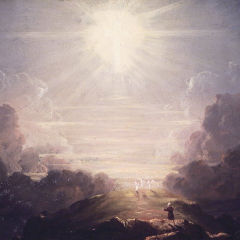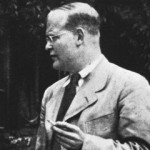
The Church celebrated Epiphany last week. Also called Theophany, it is the festival of lights and celebrates the manifestation of the Trinity at the baptism of Jesus. The Son rises from the water, the Spirit descends from above, and the Father speaks. Light enters the world in the coming of Christ, and the nature of that light is revealed in his baptism. As a result, in the ancient church and down to the present day it is common to speak of baptism as illumination. They’re synonymous.
“This illumination,” says St. Gregory Nazianzen in a sermon about baptism preached the day following Theophany, “is radiance of souls, transformation of life, engagement of the conscience toward God. Illumination is help for our weakness, illumination is renunciation of the flesh, following of the Spirit, communion in the Word, setting right of the creature, a flood overwhelming sin, participation in light, dissolution of darkness.”
All of this makes sense when remembering the association of light and God. John tells us in his first epistle that “God is light,” and in the opening chapter of his Gospel he tells us that the life of Christ is “the light of men.” Elsewhere in John’s Gospel, Jesus urges us to become “sons of light,” and he calls us “the light of the world” in Matthew’s Gospel. Our occupation is to participate and grow in the light until we beam like Moses.
That said, I am no Moses. In certain baptismal prayers, following the rite itself, the newly baptized person is called “the newly illumined.” I think it’s comforting that it doesn’t say “fully,” only “newly.” I still have plenty of dark corners. But the image of Moses here comforts as well. Moses’ illumination was a progression, not something that happened in one blinding, incandescent zap. Gregory’s words get at the same point; we are illumined so that we can have help for our weakness and overcome it.
The paradox of salvation is that God accepts us in our sin and deficiencies but does not accept the sin and deficiencies in us. His light burns away our passions and sinful desires and lights the narrow path ahead. Then, as we beam all the brighter, we can be an aide for those on the journey with us.
As we venture into a new year, I’m reflecting upon how Christ’s light can more deeply and thoroughly indwell me and then shine through me into the world around. How about you?












